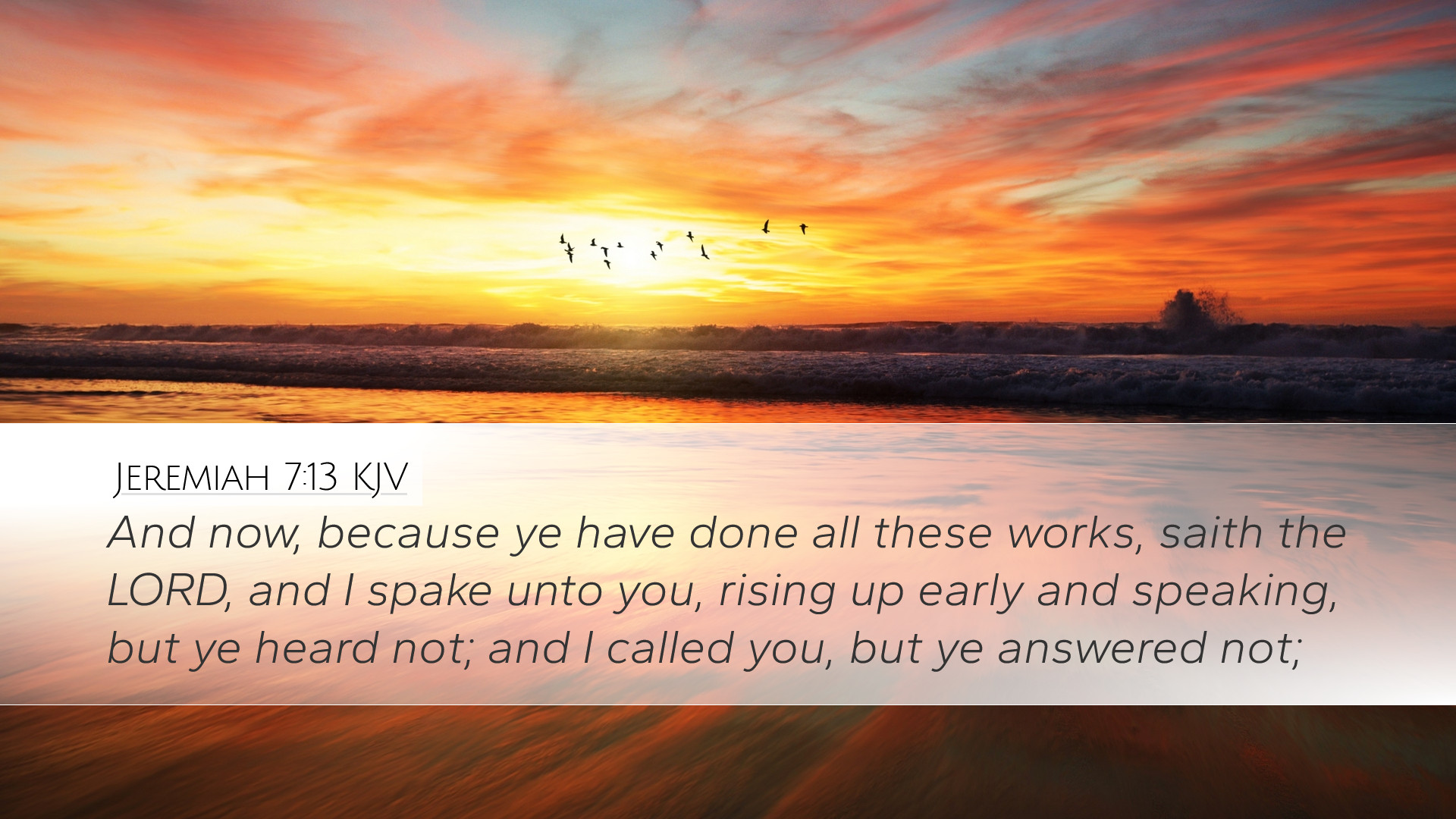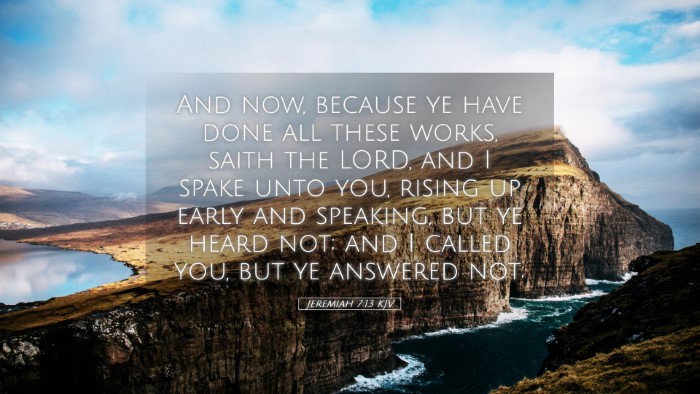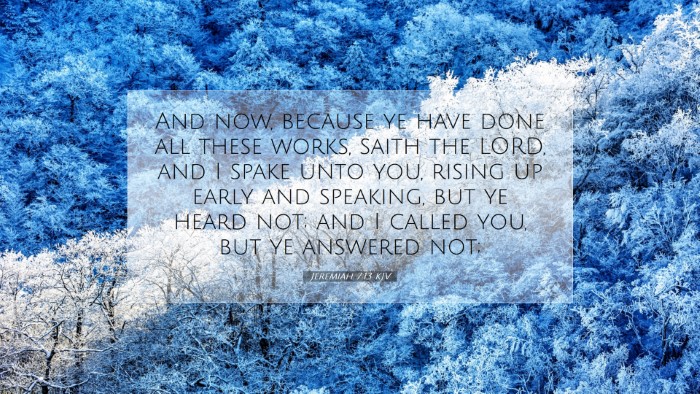Commentary on Jeremiah 7:13
Verse: "And now, because ye have done all these works, saith the LORD, and I spake unto you, rising up early and speaking; but ye heard not; and I called you, but ye answered not."
Introduction
This verse serves as a pivotal point in God's communication with His people through the prophet Jeremiah. It reflects divine reproach and highlights the consequences of a persistent disregard for God's voice. Throughout history, God's patience and persistent calls for repentance provide a rich ground for theological reflection. The insights from various public domain commentaries reveal several layers of meaning within this verse.
God’s Plea and Human Response
In this verse, we see a pattern characterized by divine initiative and human negligence. Matthew Henry notes that God speaks "rising up early," which indicates His earnest desire for the people to heed His warnings. This phrase symbolizes God's relentless pursuit of His people, demonstrating His grace despite their rebellion.
Albert Barnes expands upon this notion by examining the human tendency to ignore divine overtures. He emphasizes that the frequent calls to repentance demonstrate God's readiness to forgive; however, the people's responses are marked by hardness of heart. This emphasizes the broader theme of divine love clashing with human obstinacy.
The Significance of "Rising Up Early"
The phrase “rising up early” carries profound significance. Adam Clarke elucidates this, suggesting it illustrates the eagerness of God to reach His people, akin to a parent waking early to prepare for their children. It underscores the theme of God’s proactive and patient nature. He continuously endeavors to communicate with His people, showcasing a beautiful aspect of His character that longs for relationship and communion.
The Historical Context
Understanding the historical context is crucial for grasping the weight of this verse. Jeremiah prophesied during a tumultuous time when Judah faced imminent disaster due to its unfaithfulness. As noted by Matthew Henry, the people had engaged in numerous transgressions, ignoring the warnings delivered through Jeremiah and other prophets. Their failure to respond signifies a larger national and spiritual decline.
The Role of Prophets
God’s call through prophets, like Jeremiah, signifies His unwavering commitment to redeem His people. Clarke highlights that the prophetic role is marked by suffering and rejection, yet it remains an essential mechanism for divine communication. The rejection of God's message through His prophets underscores a serious implication of sin, which is the barrenness of human heart and spiritual numbness.
Theological Implications
This verse brings forth critical theological concepts regarding divine foreknowledge and human free will. God, in His omniscience, knows the outcomes of human choices, yet He continues to call individuals and nations to repentance. Barnes posits that this highlights the paradox of divine sovereignty and human agency, raising profound questions about accountability and grace.
Human Responsibility
The refusal to hear God carries significant implications. Henry argues that humans are responsible for their responses to God’s call. The dialogue between God and His people is merely one aspect of a larger relational dynamic in which humans must actively participate. Ignoring God's voice leads to dire consequences, as the previous chapters of Jeremiah indicate impending judgment and exile.
The Call to Repentance
Jeremiah’s message culminates in a profound call to repentance, which echoes throughout the scriptures. The urgency in God’s call demonstrates His ultimate desire for restoration. Clarke emphasizes that God's patience may wear thin, but His grace is rich. The repeated call demonstrates a chance for redemption, showcasing God’s nature as merciful, even in the face of rebellion.
The Promise of Restoration
Despite the dire warnings, God holds out hope for His people. God's appeals signify that He is always ready to restore those who genuinely seek Him. This theme of restoration permeates the prophetic literature, reminding readers of God's unwavering love, which always seeks the return of the wayward.
Conclusion
Jeremiah 7:13 encapsulates the essence of a God who calls, reaches out, and desires to commune with His people amidst their disobedience. The insights from public domain commentaries underline a profound truth about the nature of sin—the tendency to ignore the divine call—while also illuminating the richness of God's grace and mercy. As pastors, students, theologians, and scholars reflect on this verse, they are invited to consider their own responses to God’s calls in their lives and ministries, and to propagate a message of repentance and restoration in a world much like the one Jeremiah encountered.


